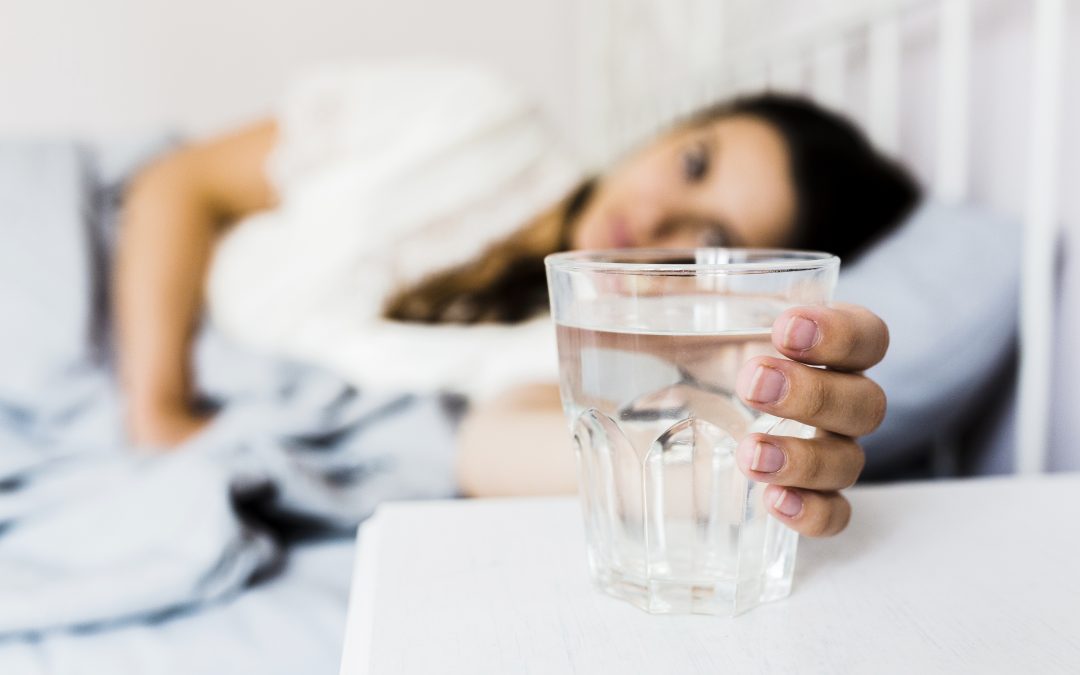Staying hydrated is vital after bariatric surgery, but excessive water intake can pose various risks. Choosing the right balance is crucial for speedy recovery. In this blog, we will learn about the different effects of overhydration, providing tips on the optimal fluid intake post-surgery for a safe and healthy recovery.
Is drinking too much water good or not? How much fluid should I drink after bariatric surgery?
Drinking too much water can be harmful after bariatric surgery. While hydration is important, excessive intake can lead to complications like electrolyte imbalances which put stress on the body. Guidelines for fluid intake post-surgery vary but typically it is recommended to sip water consistently throughout the day and avoid large quantities at once. Start with small amounts, gradually increasing while following the surgeon’s recommendations. Generally aiming for 64 to 96 ounces of water is advised.
However, individual needs may differ, so it’s important to follow the surgeon’s guidelines and listen to your body’s signals to maintain proper hydration without interfering with the body’s system. Always consult with your weight loss surgeon in Delhi for personalized hydration recommendations.

Signs and consequences of drinking too much water after bariatric surgery
Post-bariatric surgery, drinking too much water can lead to several health issues, as your body’s capacity to handle fluids changes. Here are different signs and consequences of overhydration after bariatric surgery.
Signs of drinking too much water post-bariatric surgery-
- Nausea and vomiting – Drinking too much water after bariatric surgery can overwhelm the stomach, causing feelings of nausea or even vomiting.
- Frequent urination – If you find yourself in an urge to urinate very often, especially when the urine color is clear, this indicates excessive water intake.
- Headaches – Overhydration might cause headaches due to an imbalance in electrolytes such as sodium.
- Fatigue and weakness – Drinking too much water after bariatric surgery, can also lead to fatigue, weakness, and a feeling of being unwell.
- Swelling in hands and legs – Overconsumption of water can lead to swelling in the hands, legs, and feet due to an imbalance in electrolytes.
- Change in mental state – In rare cases, overhydration can lead to confusion, instability, or change in mental state due to electrolyte imbalance.
Consequences of drinking too much water post-bariatric surgery-
- Impact on kidneys – Continuously overloading the body with excess fluids can eventually strain the kidneys, impacting their functions and leading to various complications.
- Gastrointestinal discomfort – Drinking excessive water can put pressure on the smaller stomach pouch post-surgery, causing nausea, discomfort, and vomiting.
- Nutrient absorption problems – Excessive water intake may interfere with the absorption of essential nutrients, impacting overall health and slow down the recovery process.
- Can lead to edema – Overhydration can cause swelling or edema, primarily in the hands, legs, or feet.
Different tips to stay hydrated after weight loss surgery
After bariatric surgery, it is crucial to stay hydrated for rapid recovery and overall well-being. Here are some essential and simple tips to stay hydrated post-surgery-
- Try sipping water throughout the day – Maintain hydration through sipping water throughout the day. It will not put excess pressure on the system and avoid gulping large amounts of water at once.
- Follow the surgeon’s guidelines – The bariatric surgeon in Delhi will provide specific instructions regarding fluid intake post-surgery. Follow the instructions wisely and consume the fluid as advised.
- Carry a water bottle – Keep a refillable water bottle with you every time. Keep it close, it will make you more likely to drink from it throughout the day.
- Avoid sugary drinks – Avoid sugary beverage intake like sodas and sweetened juices. These drinks do not help with hydration and can make you feel dehydrated and thirsty.
- Track your water intake – Keep track of how much water you consume each day. You can use a journal or an app on your phone. This activity helps to make sure you are drinking enough.
- Eat hydrating foods – Different foods like watermelon, cucumber, and soups have a lot of water content. Eating these foods can help you keep hydrated throughout the day.
Conclusion
Excessive water intake after bariatric surgery can have adverse effects such as electrolyte imbalance. Finding a balance is critical, listen to your body’s signals and adhere to prescribed guidelines. Following recommended fluid intake ensures a safer and more effective recovery post-surgery.

